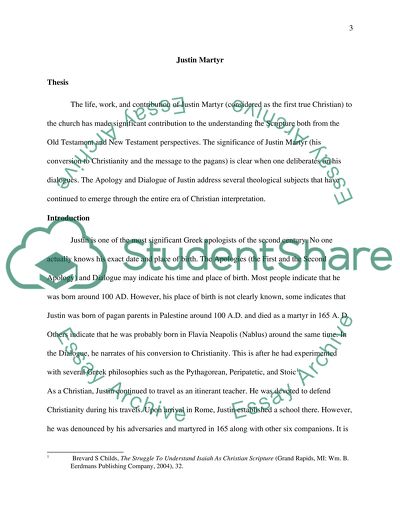Cite this document
(“Justin Martyr Research Paper Example | Topics and Well Written Essays - 3000 words”, n.d.)
Justin Martyr Research Paper Example | Topics and Well Written Essays - 3000 words. Retrieved from https://studentshare.org/religion-and-theology/1399848-justin-martyr
Justin Martyr Research Paper Example | Topics and Well Written Essays - 3000 words. Retrieved from https://studentshare.org/religion-and-theology/1399848-justin-martyr
(Justin Martyr Research Paper Example | Topics and Well Written Essays - 3000 Words)
Justin Martyr Research Paper Example | Topics and Well Written Essays - 3000 Words. https://studentshare.org/religion-and-theology/1399848-justin-martyr.
Justin Martyr Research Paper Example | Topics and Well Written Essays - 3000 Words. https://studentshare.org/religion-and-theology/1399848-justin-martyr.
“Justin Martyr Research Paper Example | Topics and Well Written Essays - 3000 Words”, n.d. https://studentshare.org/religion-and-theology/1399848-justin-martyr.


